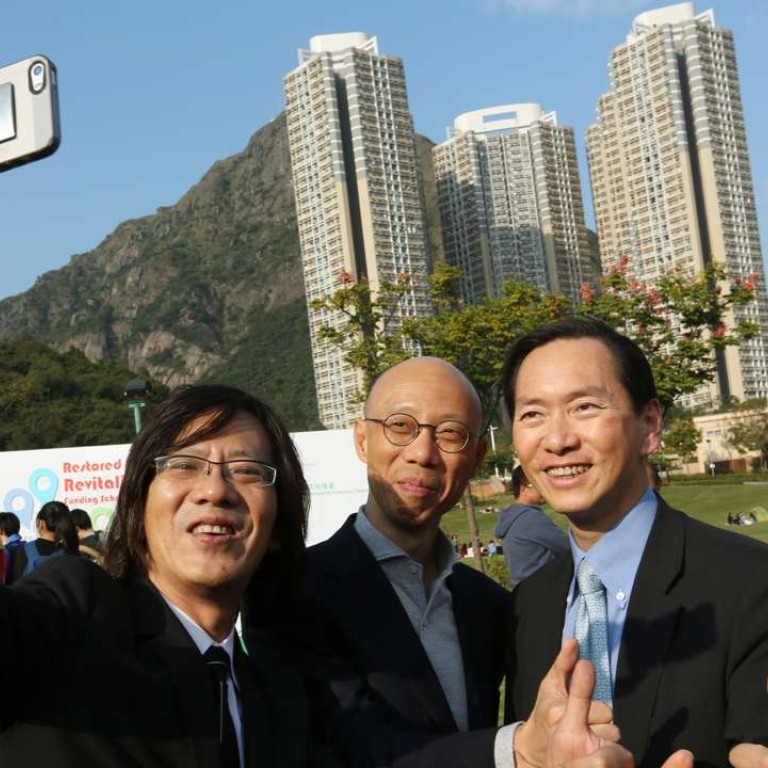
Hong Kong government criticised for being unwilling to resettle those living in industrial buildings
Development minister Paul Chan announced crackdown after two firemen died in industrial building fire in Ngau Tau Kok
Urban planning experts lashed out at the government on World Habitat Day on Monday for being unwilling to resettle low-income tenants living in cubicle flats in industrial building affected by a planned government crackdown.
The government has failed to say how many people are living illegally in the city’s 1,900 industrial buildings and whether a detailed plan exists to rehouse them.
The Society for Community Organisation says up to 10,000 residents could be affected and end up on the street if they are evicted.
During a forum on poverty and housing affordability, Institute of Architects chairman Vincent Ng Wing-shun said the government should provide affected sub-divided flat dwellers with affordable alternatives.
“Those living in the industrial buildings should not be the target,” Ng said. “You will not expect them to completely understand the Buildings Ordinance and realise living in industrial buildings can cause danger. No policy should leave these people homeless.”
Urban studies professor Yip Ngai-ming of City University said the Buildings Department, which is in charge of enforcing the crackdown, should stop passing the buck to the Housing Department, which is in charge of relocating those affected, and vice versa.
“If the government does not resettle them, it’s irresponsible,” he said.
Yip said the government had been reducing temporary housing over the past decade, leading to a shortage of housing for those affected by eviction or natural disasters.
The city’s temporary housing areas have mostly been redeveloped into permanent public housing. A few were converted into so-called interim housing, which provides accommodation for displaced residents for three months.
To date, there are only two interim housing areas in Tuen Mun and Kwai Tsing, providing around 5,000 places. But the government has decided to redevelop the Kwai Tsing facility for public housing, leaving only about 3,000 interim housing places.
In January, transport and housing minister Professor Anthony Cheung Bing-leung said the government thought the existing interim housing supply was enough to meet demand and that public housing would be the ultimate solution to address the housing needs of low-income families who could not afford private rental flats.
Eligible applicants now need to wait an average of four years for public housing.
Renting out sub-units in industrial buildings for living will become a criminal offence under a draft law to be examined by legislators next year.

